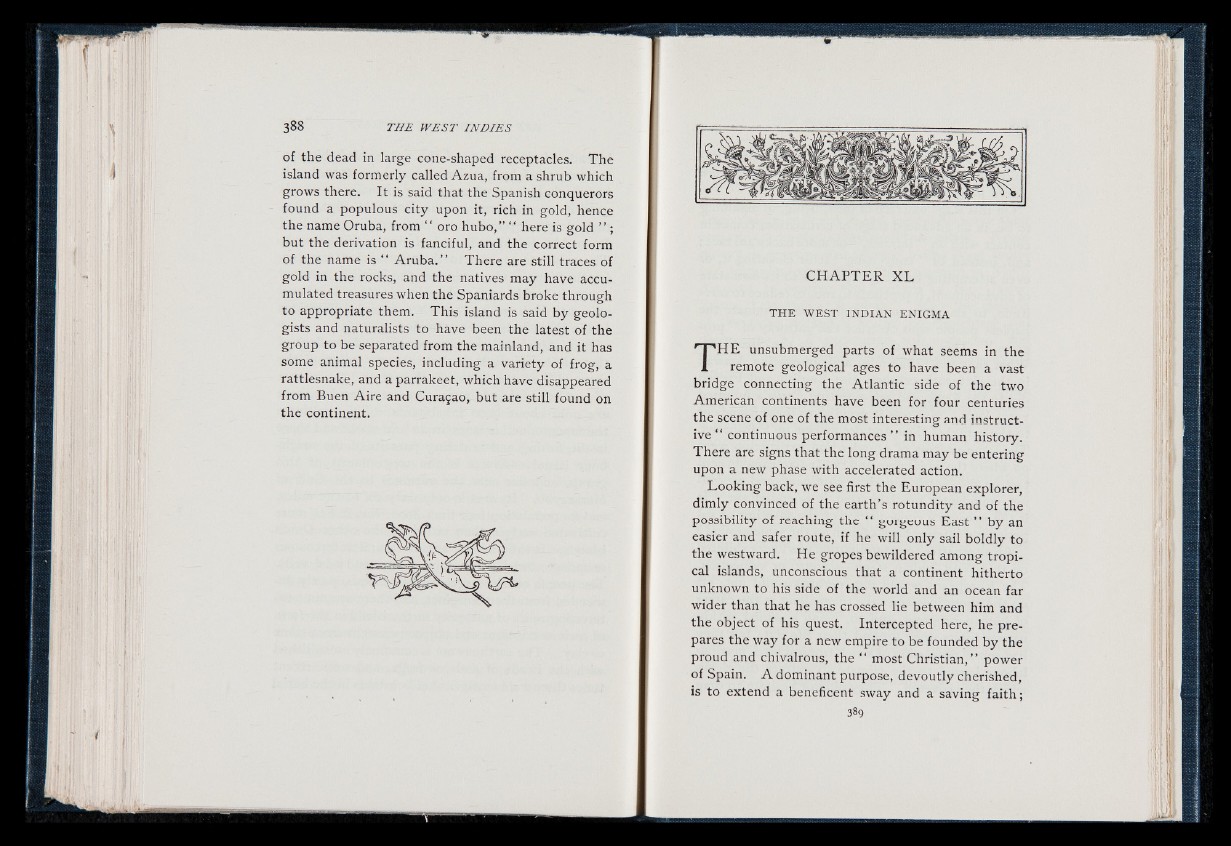
of the dead in large cone-shaped receptacles. The
island was formerly called Azua, from a shrub which
grows there. It is said that the Spanish conquerors
found a populous city upon it, rich in gold, hence
the name Oruba, from “ oro hubo,” “ here is gold ” ;
but the derivation is fanciful, and the correct form
of the name is “ A ru b a .” There are still traces of
gold in the rocks, and the natives may have accumulated
treasures when the Spaniards broke through
to appropriate them. This island is said by geologists
and naturalists to have been the latest of the
group to be separated from the mainland, and it has
some animal species, including a variety of frog, a
rattlesnake, and a parrakeet, which have disappeared
from Buen Aire and Curasao, but are still found on
the continent.
C H A P T E R X L
THE WEST INDIAN ENIGMA
TH E unsubmerged parts of what seems in the
remote geological ages to have been a vast
bridge connecting the Atlantic side of the two
American continents have been for four centuries
the scene of one of the most interesting and instructive
“ continuous performances” in human history.
There are signs that the long drama may be entering
upon a new phase with accelerated action.
Looking back, we see first the European explorer,
dimly convinced of the earth’s rotundity and of the
possibility of reaching the “ gorgeous East ” by an
easier and safer route, if he will only sail boldly to
the westward. He gropes bewildered among tropical
islands, unconscious that a continent hitherto
unknown to his side of the world and an ocean far
wider than that he has crossed lie between him and
the object of his quest. Intercepted here, he prepares
the way for a new empire to be founded by the
proud and chivalrous, the most Christian,” power
of Spain. A dominant purpose, devoutly cherished,
is to extend a beneficent sway and a saving fa ith ;
389